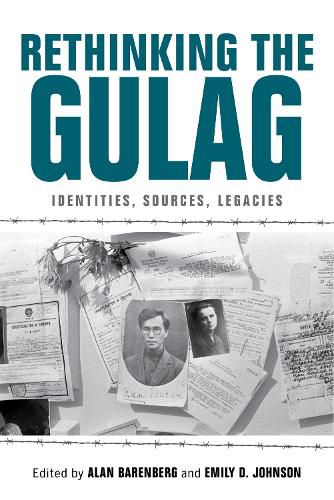Readings Newsletter
Become a Readings Member to make your shopping experience even easier.
Sign in or sign up for free!
You’re not far away from qualifying for FREE standard shipping within Australia
You’ve qualified for FREE standard shipping within Australia
The cart is loading…






The Soviet Gulag was one of the largest, most complex, and deadliest systems of incarceration in the 20th century. What lessons can we learn from its network of labor camps and prisons and exile settlements, which stretched across vast geographic expanses, included varied institutions, and brought together inmates from all the Soviet Union’s ethnicities, professions, and social classes?
Drawing on a massive body of documentary evidence, Rethinking the Gulag: Identities, Sources, Legacies explores the Soviet penal system from various disciplinary perspectives. Divided into three sections, the collection first considers identities -the lived experiences of contingents of detainees who have rarely figured in Gulag histories to date, such as common criminals and clerics. The second section surveys sources to explore the ways new research methods can revolutionize our understanding of the system. The third section studies legacies to reveal the aftermath of the Gulag, including the folk beliefs and traditions it has inspired and the museums built to memorialize it. While all the chapters respond to one another, each section also concludes with a reaction by a leading researcher: geographer Judith Pallot, historian Lynne Viola, and cultural historian and literary scholar Alexander Etkind.
Moving away from grand metaphorical or theoretical models, Rethinking the Gulag instead unearths the complexities and nuances of experience that represent a primary focus in the new wave of Gulag studies.
$9.00 standard shipping within Australia
FREE standard shipping within Australia for orders over $100.00
Express & International shipping calculated at checkout
The Soviet Gulag was one of the largest, most complex, and deadliest systems of incarceration in the 20th century. What lessons can we learn from its network of labor camps and prisons and exile settlements, which stretched across vast geographic expanses, included varied institutions, and brought together inmates from all the Soviet Union’s ethnicities, professions, and social classes?
Drawing on a massive body of documentary evidence, Rethinking the Gulag: Identities, Sources, Legacies explores the Soviet penal system from various disciplinary perspectives. Divided into three sections, the collection first considers identities -the lived experiences of contingents of detainees who have rarely figured in Gulag histories to date, such as common criminals and clerics. The second section surveys sources to explore the ways new research methods can revolutionize our understanding of the system. The third section studies legacies to reveal the aftermath of the Gulag, including the folk beliefs and traditions it has inspired and the museums built to memorialize it. While all the chapters respond to one another, each section also concludes with a reaction by a leading researcher: geographer Judith Pallot, historian Lynne Viola, and cultural historian and literary scholar Alexander Etkind.
Moving away from grand metaphorical or theoretical models, Rethinking the Gulag instead unearths the complexities and nuances of experience that represent a primary focus in the new wave of Gulag studies.